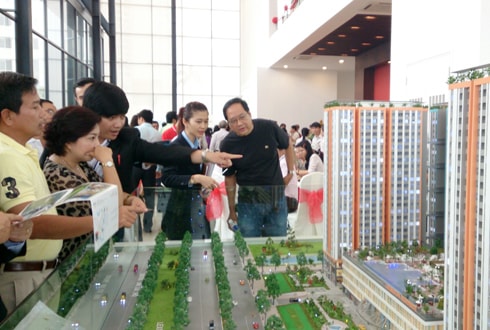How should Vietnam tax second homes?
The Ministry of Finance's research on property tax (which targets second homes and beyond) has received many proposals to study the practices of developed countries in the region and around the world before applying this tax.
» Who has a second home and has to pay tax?
Ho Chi Minh City Real Estate Association (HoREA) pointed out 6 types of property tax that Vietnam can consider referring to.
In the US, real estate taxes are determined by the states, each state has different tax rates. For example, in the state of California, the tax rate is more than 1.2% of the value of real estate per year, including houses and land. In the state of Texas, the tax rate is more than 4%. Tax rates in different states in the US are due to the value of real estate in different states.
In Taiwan, tax rates are differentiated by real estate segment, such as 1.2-2% tax rate for condominiums; about 1.4% for private houses; 3-5% for commercial buildings.
In Korea, different tax rates are applied to real estate products, such as 0.15-0.5% tax on private houses; 0.25% tax on condominiums; 4% tax on villas, houses in golf courses, entertainment areas; 5% tax on houses in large urban areas. Tax rates are calculated based on land price lists issued by localities.
In Singapore, second property taxes are very high, with additional property tax applied since 2013 on second properties being up to 7% of the purchase price; 10% for third properties.
In Japan, real estate tax ranges from 1.4% to 2.1% of the market value of both houses and land and is adjusted every three years.
 |
Experts say it is necessary to carefully study and consult property taxes in many countries before applying a tax on second homes. Photo: Vu Le |
In the UK, a new property tax has been introduced on second properties since April 1, 2016. With this regulation, for second properties priced over £40,000, the buyer must pay an additional 3% on top of the normal tax rate. For houses priced over £1.5 million, the tax rate is up to 15%. However, if the old house is sold within 3 years of buying the second house, the tax paid will be refunded.
Meanwhile, Jones Lang LaSalle (JLL) assessed that the difficulty in Vietnam at the moment is how to identify a second home for tax purposes. For example, in the case of a large family, or in the case of intentionally evading the law by having multiple family members in the name of the property, instead of one person.
JLL believes that this issue needs to be studied quite carefully. Vietnam can refer to the Singapore model, with the current basic tax rate and additional tax rates based on the current tax rate. Or like the UK, for real estate under 250,000 USD, no tax is required, but over 250,000 - 500,000 USD, different tax rates apply.
In general, there are many options for this law. As for Vietnam, it is possible to apply a similar tax rate as the first case, which is 3%. This unit assesses that new laws need the participation of all levels of government and related departments. In addition, the authorities also need to consult with professional real estate market research companies to be able to build a suitable system that can be applied in practice.
According to JLL, currently, real estate buying and selling procedures must still be carried out on a document system (mainly manual), the application of information technology in the real estate sector in Vietnam is still very limited. Therefore, if investors and customers buy another real estate (own a second home or more) in Vietnam, how the management agency can monitor this is still a question. The immediate difficulty is that it takes a lot of time without the help of an information technology system.
This unit forecasts that to do this effectively across the entire system, Vietnam needs to establish an information system to store all records of real estate transactions and real estate owners. However, there will still be challenges when family members can take turns owning real estate to avoid taxes.
According to VNE
| RELATED NEWS |
|---|

